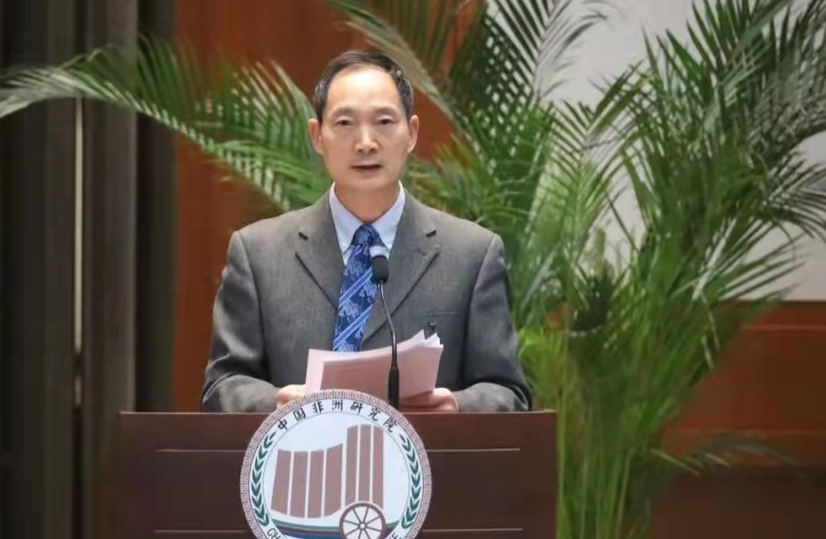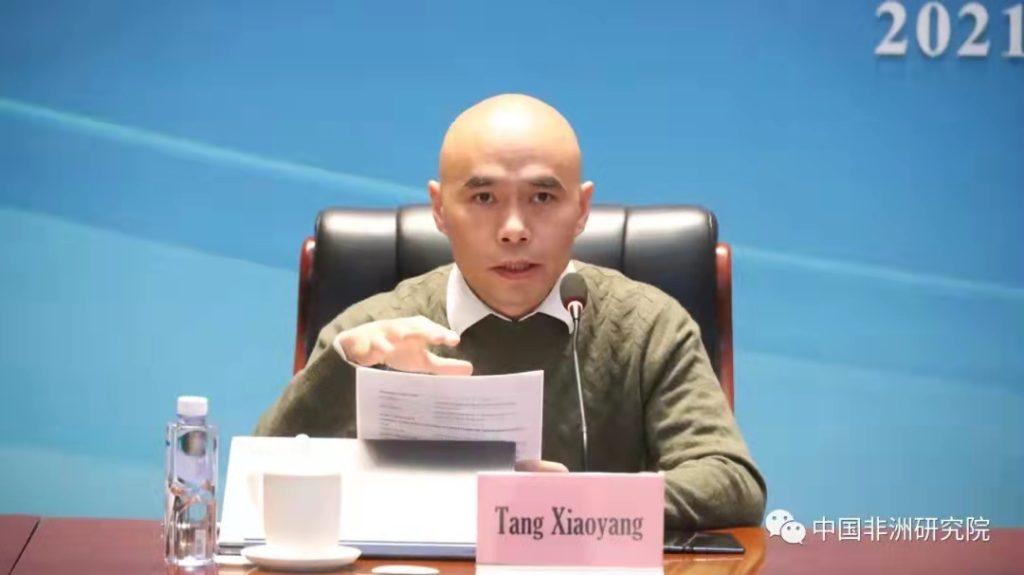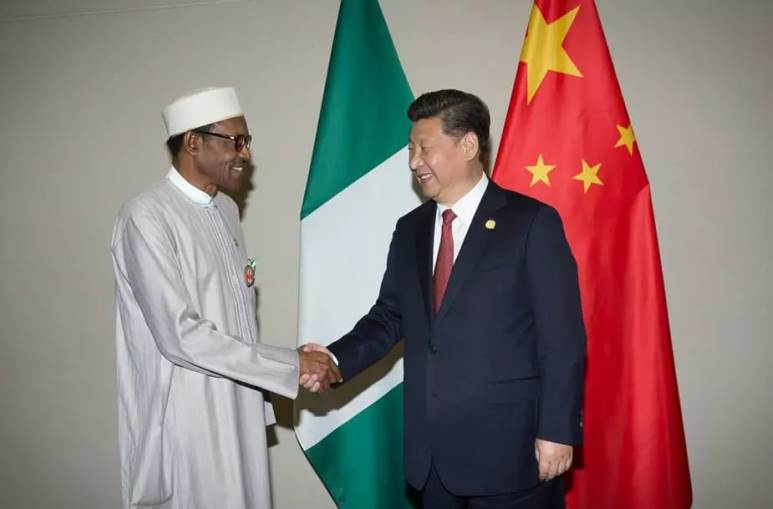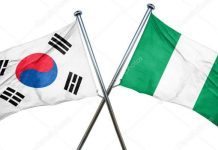
By Idowu John Bakare/ Participants of the China Africa International Conference on Thursday advised on the need to stem African countries negative trade imbalance, pointing out need for more trade agreements under the umbrella of FOCAC to boost production and add value to African products.
They urged African countries to speed up vaccinations efforts and create African manufacturing conditions for the production of vaccines and quality medicine in view of the new emerging variants of the virus.
The Extraordinary and Plenipotentiary Ambassador of Capo Verde to China, Tania Romualdo, in her opening remarks warned that “Africa is condemned if the ongoing vaccination does not proceed at quick term and also if there are not enough resources to ensure its post Covid economic recovery.”
The experts and scholars from Africa and China applauded President Xi Jingoing’s donations of additional 1 billion vaccines doses to Africa countries.
Ms Romualdo who spoke, on Thursday at the International Conference on China Africa Cooperation said the current figure of less than 6 percent vaccination rate in Africa calls for serious concern especially with the discovery of the new Omicron variants.
She said the announcement by Chinese President, Xi Jingping, of additional donations of 1billion vaccine doses for Africa at the just concluded FOCAC in Dakar, Senegal came at a right time against the backdrop of clamour for justice and morality in global vaccines distribution.
“The announcement of Chinese provision of another billion doses of vaccines to Africa comes when UNSG is ringing alarm against injustice and lack of morality in terms of the way the international communities deals and is dealing with Africa in this period marked by pandemic and climate crises.
” It is critical not only to make vaccines available to African Countries but to create African manufacture conditions for the production of vaccines and quality medicine, ” Ms Romualdo said.
Speaking on the theme: China Africa Cooperation in the New, Opportunities and Challenges, experts and scholars from both China and Africa agreed that Beijing had presented itself as a dependable ally to African countries especially with its strong assistnce and support in managing the Covid -19 pandemic.
The Executive President and Fellow Researcher of the China-Africa Institute, Professor Li Xinfeng, the organizers of the Conference, in his opening remarks said the November 29, 2021, the 8th Ministerial Conference of the Forum on China-Africa Cooperation (FOCAC) held in Darkar, Senegal, has not only consolidated the everlasting spirit of China-Africa friendship with sincere friendship, equality, mutual benefit and common development, fairness and justice, but also enriches connotations of China-Africa partnership in the new era by opening up new prospects of cooperation amid significant changes of the world unseen in a century.


“At the opening ceremony of the conference, H.E. Chinese President Xi Jinping delivered a keynote speech via video link in Beijing to honor the traditional China-Africa friendship through recalling the splendid history of China-Africa fraternity on joint struggle against the colonialism and imperialism and setting out new road map of a glorious future for the building of a stronger China-Africa community with a shared future,” Prof. Li noted.
“In his speech, he pointed out that the year 2021 marks the 65th anniversary of diplomatic relations between China and African countries, both sides have written a splendid chapter of mutual assistance amid complex changes and set a shining example for building a new type of international relations. Standing at the historic starting point of building a China-Africa community with a shared future in the new era, he made a four-point proposal, including fighting COVID-19 pandemic with solidarity, deepening practical cooperation, promoting green development and upholding equity and justice, which highlights the common concern of both China and Africa on their boulevards towards inclusive and sustainable development as well as the strategic direction of China-Africa relations in the upcoming future.
“As concrete steps to put forward the building of comprehensive strategic partnership, he promised that China will work closely with African nations to carry out nine programs as part of the first three-year plan under the China-Africa Cooperation Vision 2035.
“The support package, which includes 1 billion doses of COVID-19 vaccines, 10 poverty reduction and agricultural projects in Africa, dispatching 500 agricultural experts to Africa, fast lanes for African exports to China, investment no less than USD 10 billion, invitation of 10,000 high-caliber African professionals to seminars and workshop and many other plannings, further highlights China’s resolution and dedication to share its development dividend with Africa as a responsible international power as well as a true friend of Africa.
“As an inheritance and development of 10 major cooperation plans of the FOCAC Johannesburg Summit of 2015 and 8 major initiatives of the FOCAC Beijing Summit of 2018, today’s nine program will further explore new opportunities and inject new impetus for the building of a stronger China-Africa community with a shared future through synergy of the Belt and Road Initiative and the African Union’s Agenda 2063 on economic partnership, political mutual trust, social development, public health, environmental protection, security, capacity building and people-to-people exchanges,” Prof. said.


Director, Africa Communication Research Center, CUC, Prof. Zhang Yanqiu in her remarks said the Chinese additional 1 billion covid-19 vaccine doses donated to Africa with additional stimulus package should be seen as “vaccines multilateralism as against vaccine nationalism.”
According Prof. Zhang, China sees Africa as a broad stage for international cooperation rather than an arena for competition among major countries.
“Therefore, the additional 1 billion doses of COVID-19 vaccines to Africa should not be called “ vaccine diplomacy”.
“China has always been the most sincere and reliable partner for Africa’s development and revitalization.China has already announced that it will no longer support new coal-fired power projects abroad, which means China is likely to provide more funding for renewable energy projects in Africa, which will help the two sides to meet the dual challenge of generating energy and fighting climate change.
“As the COVID-19 pandemic poses a formidable challenge to the continent’s development, and climate change is profoundly affecting the energy transitions of African countries, global cooperation is required to support Africa’s post-pandemic recovery and green transition,” she added.
“First, I think, in this collective effort, all parties should respect each other, and tap potential for cooperation based on natural divisions of labor, which will bring benefits not only to themselves but also to African countries.
Zhang who is also the Director of Africa Communication Research Centre at the Communication University of China, Beijing, urged media practitioners to be wary of misinformation and disinformation in the fight against the pandemic.
“Nowadays, the media are playing a key role in enhancing globalization and multiple flows of information between countries. However, an infodemic, which is defined as a tsunami of information—some accurate, some not— has spread alongside an epidemic.”


“Although infodemic are not a new phenomenon, the volume and rapid scale-up of facts, but also misinformation and disinformation, surrounding the COVID-19 outbreak are unprecedented. If it is not managed accordingly, an infodemic can have direct negative impacts on the health of populations and the public health response by undermining the trust in science and interventions. As WHO stressed that it is vital for the media to acknowledge that infodemic management can reduce the direct and indirect negative impacts on the health of populations, as well as growing mistrust towards governments, science, and health personnel which has fueled the polarization of societies, such as to promote the COVID-19 pandemic management practices and share experience on value-added partnerships.
We call for the social responsibility of Think Tanks to interpret FOCAC effort objectively. Rather than creating divides, stereotypes, and tensions, think tanks should be committed to finding solutions and tools, bridging dialogues, consensus for shared values and for shared future between China and Africa,” she added.
Participants at the conference agreed that China Africa relations would be further enhanced in the new era of cooperation in the areas of investment, digital innovation and green technology.
The relationship between the two sides, it was observed, predated the current trade and economy. Some of the speakers cited China’s support for Africa’s independence struggles as evidence of decades of relationship.
The China’s Belt and Road Initiatives was also identified as a vehicle for more cooperation between China and Africa.
Director of the Centre for China Studies, Nigeria, Member of the Consultative Committee of CAI, Prof. Charles Onunaiju, said there was no global initiative that has engaged the challenges that Africa faces at the moment like the Chinese Belt and Road initiatives.
According to him, it gives Africa advantage of economic of scales in terms of connectivity, infrastructure and would give impetus to the idea of Africa single market while offering Africans the opportunity to gain access into Chinese market.
He said the policy choices of African nations would determine how far they can leverage the opportunity of the new era of China Africa cooperation if the continent is to benefit maximally from the FOCAC agreements.
Mr Onuaniju observed what he called a reemerging Cold War mentality of the West geared towards containing a socalled China’s influence peddling in Africa.


Prof. Tang Xiaoyang said China Africa cooperation is growing stronger in the pandemic. He said the current growing partnership between was a product of millennium relationship as the two shares have lots of common interest.
“Today, we out emphasis on technology, trade, digital economy is in furtherance of earlier cooperation during the fight against imperial pressure.”
Professor David Monyae, Director and Professor of the Africa-China Research Center of University of Johannesburg, African Director of the Confucius Institute at University of Johannesburg, South Africa, observed that China Africa cooperation is already shaping international democratic order.
He applauded China’s plan to create a market for African products in China, urging African countries to ensure competitive products.
Director of the Egyptian Council for Foreign Affairs, Egypt, Member of the Consultative Committee of CAI, Mr. Ezzat Saad Elsayed, noted that the volume of trade between China and Africa has multiplied severally with financial and logistical supports from China and has helped the capacity of many African countries.
He urged for technology transfer to enable Africa enhance her capacities.
Mr Elsayed said the Africa continent has become a new front for rivalry among super powers, warning of the great danger such portends. He said no African country would be willing to stand with one power to the exclusion of other.
Participants urged African leaders not to allow Africa to be used as theatre of cold war between super powers.














